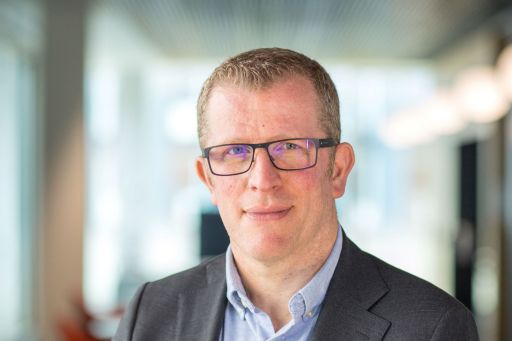Your voice on the green transition
Fact: We all need to act now.
The world needs to adopt sustainable ways of living, working and doing business. The onus is on all of us: governments, local authorities, regulators, companies and consumers to act fast.
Local leaders are passionate about working together to help combat climate change. But they recognise they need a more coherent vision and that they need to step up their efforts to collaborate to make the necessary change in time.
What actions do we need to take now to continue the work done so far and to accelerate the journey to net zero in our cities? Where do we start and what is the vision for the green transition? Who will be responsible for creating achievable action plans? And how will we know if we’re heading in the right direction?
New report: Voices of Place: The Green City
We posed those questions to local leaders and key influencers in five areas across the UK, each with its own distinct climate issues: Aberdeen, Gatwick, London, Manchester and Southampton. Aberdeen, Gatwick, London, Manchester and Southampton. We’ve taken their voices and distilled their views to create the second of our Voices of Place reports: The Green City.
The report discusses the vision for greener places, what needs to change to deliver them and how progress is measured to meet local and national targets. It also identifies steps we can take to build our greener cities.
The vision: What should the green transition look like?
Local leaders want to create places that are not just green, but socially just, prosperous and rich with opportunity.

A just transition
Can our Cities be green and fair?
Learn more
A just transition
Climate change is seen as an opportunity to create places that are not just environmentally friendly, but also socially equitable.
This could be a chance to tackle inequality. Green energy, tech and ways of living can help us address issues such as economic deprivation, poor housing and access to healthcare.

The opportunity
Business growth and better places
Learn more
The opportunity
The green transition is an opportunity to drive economic prosperity.
It promises more appealing places for organisations to base themselves and for our people to live and work.

Systems thinking
We need to take a joined-up approach
Learn more
Systems thinking
We need to take a systems-thinking approach to tackling climate change.
That requires mapping out the complex interactions between different elements of the built and natural environment, and understanding the impact of actions in one area on another.
Creating the plan: How will the planning process work?
Once the vision for the green transition is in place, we’ll need to plan for it. We’ll need detailed, interconnected actions plans, and strong local leadership to pull them together and secure funding.

Translating the vision
Connected planning
Learn more
Translating the vision
Forging a vision of what combatting climate change will look like in our cities is only the beginning.
That vision will need to translate into whole series of detailed plans that give businesses and individuals permission to drive change.

Strong leadership
Convening the key stakeholders
Learn more
Strong leadership
Strong local leadership will be key. Who will convene the plan at a local level? How will they engage businesses in the process?
Innovative approaches to public-private collaboration must be found – and rapidly enabled.

Financing
Where will The funding come from?
Learn more
Financing
Business investment, government grants, green finance – whatever the source of finance, local leaders want greater autonomy to use them to the best effect.
Measuring success: How do we know we’re moving the dial?
Monitoring the impact of the green transition means moving beyond traditional cost and time metrics. Whilst defining the measures, we can still make an immediate start.

Climate metrics
Creating the framework
Learn more
Climate metrics
Environmental measures are not the standalone metrics.
We also need to look at economic and social justice indicators, such as job and business creation, and public health standards.

Agility
Recognising cause and effect
Learn more
Agility
We need to recognise that targets will shift and be flexible with our goals.
And we should recognise that we don’t have the time to wait for perfect measures, data and IT platforms. We need to set short-terms ambitions right away to focus the immediate actions in the right areas.

Plain speaking
Meaningful metrics with real accountability
Learn more
Plain speaking
Everybody involved should understand who is answerable for which aspects of the plan and how they will demonstrate the shift we’re hoping to bring about.
About the series
What happens in our regional economies affects the prosperity of the UK as a whole. That’s why it’s important that we make sure the voices of our places are heard. Through our Voices of Place series we’re enabling that to happen. We’ll be connecting key influencers and leaders from across the UK’s main metropolitan areas. Together, we’re tackling some of the biggest issues facing our places – from digital transformation to climate change.
CSS Container: Please DO NOT DELETE THIS!
Open this and put CSS inside the below style tag
Note: This message is not visible outside of the edit screen
JavaScript Container: Please DO NOT DELETE THIS!
Open this and put JS inside the below script tag
Note: This message is not visible outside of the edit screen
Top picks for you
Contact our experts
Save, Curate and Share
Save what resonates, curate a library of information, and share content with your network of contacts.



